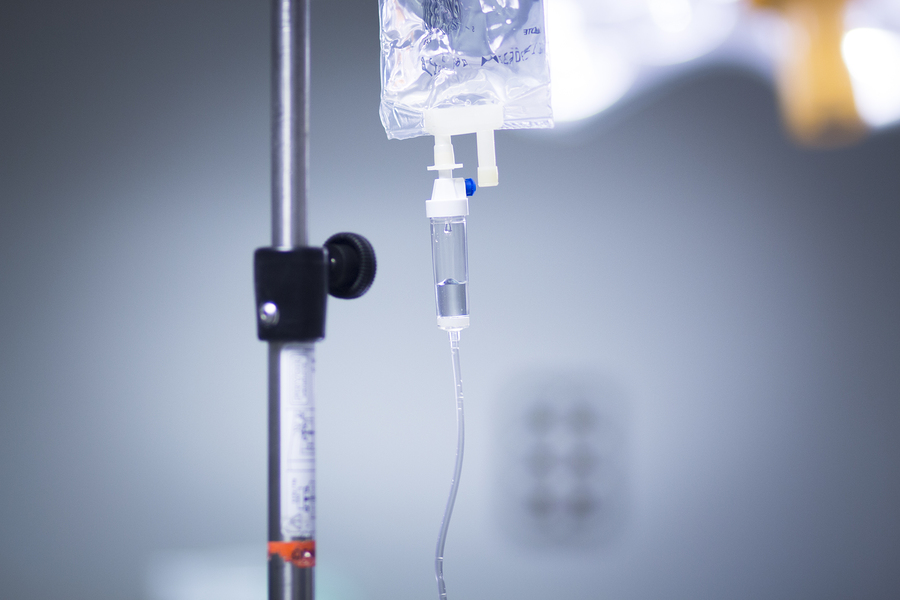All About Alcohol Detox Treatment and Facilities
Substance abuse is a problem that can affect every aspect of a person’s life. However, in recovery, the first issue that must be dealt with is a physical dependency. People who have been using alcohol consistently for many years will have developed physical symptoms of addiction, such as tolerance and withdrawal, due to the toxins in their system.
The best and most effective way to rid a person of their physical dependency is to undergo an alcohol detox program. Attempting to quit an addiction without help from a detox center can be dangerous for people with severe dependencies. Fortunately, there are many options to choose from to get the necessary care from an alcohol detox center.
The type of detox program you choose will depend on your individual needs and preferences. Everyone has different issues and ways of dealing with their substance abuse. For people in professional careers, a luxury or executive detox program may be the best choice.
What Is Alcohol Detox?
Detoxification is a process of the removal of toxic substances from a person’s body. Alcohol detox programs help an alcoholic to get clean and sober. It helps patients who have been severely addicted to alcohol for a prolonged period and are unable to quit due to physical dependency. When a person joins any rehab center, the first step should be a detox treatment that removes toxic substances from the body.

Benefits of Luxury Alcohol Detox Facilities
There are numerous reasons why someone might decide that luxury detox is the right choice for their first recovery steps. People in high-powered positions may feel that their career has played a role in their alcohol abuse, and want to be in an environment that caters to their specific needs. Executives, doctors, lawyers, and other professional people may want to be around others that are in similar positions and may require a certain type of support.
Many luxury or executive alcohol detox treatment centers offer a level of discretion and anonymity that may be harder to find at regular centers. Luxury alcohol detox facilities are often in more isolated areas where people can get away from the stress of daily life and feel more inconspicuous. They may feel that they can maintain their reputation and avoid damaging their careers with luxury alcohol detox centers.
Luxury detox means people can undergo the process of withdrawal in a much more comfortable environment. A luxury detox has higher quality facilities, food and accommodations – making detox an easier experience all around. Although it is only the first step in recovery, detox can be one of the hardest parts and some people feel they need the extra comfort to get through it.
Is Alcohol Detox Safe?
Physical reliance on alcohol is a long-term consequence of excessive drinking. Physical dependence develops gradually as the body adapts to the effects of alcohol. Withdrawal from alcohol causes mild to moderate symptoms such as headaches, a racing heart, and heightened anxiety in many people. More serious symptoms can include fever, hallucinations, and seizures.
When managed by medical professionals, alcohol detox is safe. During the treatment period, your doctor can keep an eye on your vital signs and intervene if you develop a fever or other serious symptoms. You can take the prescribed medications listed below when supervised by medical staff.
How Does Alcohol Detox Work?
It’s important to be thorough when sharing your history of alcohol addiction with medical staff so you can detox in the safest, most appropriate way. Alcohol detox treatment will begin with a complete cessation of alcohol usage. As symptoms arise, medications may be used to help the patient get through the physical discomfort of the detox. These medications are temporary and used only in tandem with a detox. Some examples of medication used are:
- Sleep aids that are non-addictive (for treating insomnia or other sleep disorders)
- Painkillers (to ease aches and pains)
- Benzodiazepines (to prevent seizures during a detox process)
- Methadone, buprenorphine, or naloxone (for opioid detox and addiction)
Medications like these are always taken under the supervision of medical professionals.
Alcohol Detox Programs and Withdrawal Symptoms
Over time, an alcoholic’s body builds a tolerance to alcohol and is able to function with a certain amount of toxins flowing through it. When that person joins an alcohol detox program and is no longer drinking alcohol, the body can go into shock.
Throughout withdrawal, the patient will need medical attention to deal with a variety of symptoms. Withdrawal symptoms will vary depending upon the severity of ingestion of alcohol, how long the person has been addicted, and the level of consumption before the detox. At an alcohol detox center, the treatment takes place under the supervision of medical professionals and addiction specialists – decreasing the medical risks associated with alcohol withdrawal.
Some common withdrawal symptoms include:
- Body aches and pains
- Uncontrollable trembling or tremors
- Sweating
- Feelings of restlessness
- Runny nose and eyes
- Severe fatigue
- Sleep disturbances
- Severe changes in mood
- Increased cravings
Although it depends on the individual, withdrawal symptoms tend to subside within a week or so of detox treatment. There may be some lingering emotional symptoms that can be addressed in a rehab program that should immediately follow detox. However, physical dependency should be essentially eliminated by the time the person completes their alcohol detox treatment.
Because withdrawal symptoms can be so uncomfortable, some people prefer a luxury alcohol detox center because it offers the chance to minimize their discomfort. In a luxury detox facility, you have highly qualified staff and a lower patient-to-staff ratio. Luxury programs have the best professional staff members that provide an optimal level of care throughout detox.
Completing an alcohol detox program is not a full recovery. Because alcohol addiction affects both the physical and psychological health of an individual, it’s necessary to address both areas in order to make a complete and long-lasting recovery possible. Detoxification is only the first step toward reaching the goal of recovery.
Once a patient has removed all traces of alcohol from their body, they will need to begin working on their cravings and the psychological aspects of their addiction. This will contribute to a greater likelihood of a successful, long-term recovery and will lower the risk of a relapse.
The Effects of Alcohol Detox Programs
Detox treatment is one of the most difficult steps of recovery because of the unpleasant physical effects it has on the body.

At-Home or Inpatient Alcohol Detox?
Individuals who try to get and stay off alcohol by themselves almost inevitably fail – it is very difficult to go through withdrawal or at-home detox and often, people return to alcohol use. This is why at-home detox kits are ineffective and also potentially dangerous.

An alcohol detox program should be specifically tailored to an individual’s unique medical history and needs. This is something you can’t get from an impersonal at-home kit, or by even trying to detox on your own. A detox kit also won’t help you move on to the next stages of recovery – something that’s important for maintaining sobriety and lowering the chances of a relapse.
An alcohol detox treatment center is ideal for anyone who is serious about making changes when it comes to alcohol addiction. This is why inpatient detox is the most commonly used method for ridding the body of alcohol. A residential, inpatient program provides round-the-clock care to monitor and treat the symptoms of withdrawal and provide medical assistance if a medical emergency does arise. The length of an inpatient detox will depend on the severity of symptoms and the individual’s unique medical needs.
Outpatient Detox Treatment
Outpatient detox is not as common as a residential detox treatment, but it can be effective for less severe cases of alcoholism. This method requires a higher level of persistence and commitment as it requires the patient to regularly check in with their clinic for treatment and medication. This option can be good for those who have extensive family or work obligations, or who require a more affordable option. Outpatient detox should only be done on the recommendation from an addiction specialist.
Detox and the First Step Towards Recovery

Once detox is completed, the patient can begin the next stages of treatment at the same facility or move to a different facility that’s a good fit for their recovery. Patients need to address the psychological aspects of their addiction through various types of therapy, continuing medical care, educational activities, and learning new skills for living a sober life. An alcohol detox center can provide all these things, and also help the patient uncover the psychological issues that lie at the core of their addiction. This is also where any co-occurring disorders are also treated.
A luxury alcohol detox program can help you move on to the next steps of recovery by:
- Providing any necessary psychiatric care
- Creating a recovery plan that’s right for you
- Determining if medication can continue to help with symptoms
- Providing individual and group therapy
- Connecting you with the recovery community
- Educating you to fully understand your addiction or alcoholism
- Arming you with powerful skills to build a foundation for a new life
- Building a sense of support and confidence that you carry beyond rehab.
Getting Treatment in Rehab Center after Alcohol Detox
Following detox, it is important to enroll in a complete rehab program so that you have the opportunity to get help for the many cravings and emotional addictions that you will still be dealing with. Even though you might have completed a great quality luxury alcohol detox program with excellent care, it is still crucial to spend a few months in rehab to make a full recovery. Detox is only the first step in a longer, more involved process of quitting an addiction permanently.
If you felt comfortable in your experience at luxury detox you may be able to continue in a rehab program at the same facility if they offer a complete recovery plan. Otherwise, you might need to look for another luxury rehab that offers inpatient treatment. There are likely to be plenty of options for both luxury rehab and detox treatment centers if you look in your local area.
Call today to find out more about our detox treatment center.




